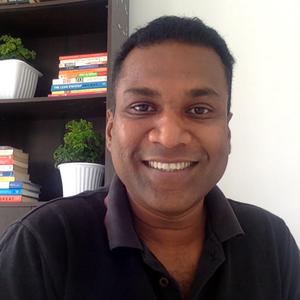Facebook is securing its platforms globally, providing
transparency and empowering people to vote. Today, with elections ongoing across Tamil Nadu, West Bengal, Assam, Kerala and Puducherry, the social media giant has announced further information on the measures that are being implemented to support and protect these important elections.
Based on lessons learnt from past elections in India and globally, steps are being taken to enhance civic engagement, combat hate speech, limit misinformation, and remove voter suppression. Facebook will also continue to closely partner with election authorities, besides setting up a high priority channel to remove
content that breaks its rules or is against local law after receiving valid legal orders.
Facebook Combats Hate Speech and Demotes Likely Hate Speech
Facebook recognizes that there are certain types of content, such as hate speech, that could lead to imminent, offline harm. The company has detailed policies against hate speech, and removes violating content as soon as it becomes aware of it.
To do this, Facebook has invested significantly in proactive detection technology to help catch violating content more quickly.
To decrease the risk of problematic content going viral in these states and potentially inciting violence ahead of or during the election, Facebook will significantly reduce the distribution of such content identified as likely hate speech or violence and incitement. Furthermore, this content will be removed if determined to violate Facebook’s policies.
Under its existing Community Standards, Facebook removes certain slurs that it determines to be hate speech. To complement that effort, Facebook may deploy technology to identify new words and phrases associated with hate speech, and either remove posts with that language or reduce their distribution.
Facebook Improves Efforts to Reduce Repeat Offender Content
In addition to its standard practice of removing accounts that repeatedly violate its Community Standards, Facebook will also temporarily reduce the distribution of content from accounts that have recently and repeatedly violated itspolicies.
Facebook Enables Third-Party Fact-Checking to Limit Misinformation
As part of its efforts to tackle misinformation, Facebook works with third-party fact-checkers around the world, including eight partners in India who are certified by the International Fact-Checking Network, to provide people with additional context about the content they’re seeing on Facebook.
Over the last year, Facebook has enhanced its coverage in the primary languages of the states going to vote. In addition to English, these eight partners fact-check in 11 Indian languages including Bengali, Tamil, Malayalam and Assamese.
When a fact-checker rates a story as false, Facebook labels the content and show it lower in News Feed, significantly reducing its distribution. This stops its spread and reduces the number of people who see it.
Voter Suppression Policy Reinforcement
Facebook’s policies prohibit voter interference, defined as objectively verifiable statements such as misrepresentation of dates and methods for voting (e.g., text to
vote). It also removes offers to buy or sell votes with cash or gifts.
Additionally, Facebook also remove explicit claims that you will contract COVID-19 ifyou vote. Eg. “Don’t go to the polls today, everyone will get COVID-19” or “If you want to guarantee catching COVID, go vote today!”
Voluntary Code of Ethics with the Election Commission of India
In 2019, led by the industry body IAMAI, Facebookhad set up a high priority channel with ECI for Facebook, Instagram and WhatsApp, to receive content-related escalations. The Voluntary Code is applicable for this election as well.
Enhanced Civic Engagement
Facebook has an important part to play in creating an informed community, and helping people access all the information they need to take part in the democratic process.
This includes reminding people to exercise their democratic right to vote–here Facebook has designed Election Day reminders to give voters accurate information and encourage voters to share this information with friends on Facebook and WhatsApp.
Educate Users About Staying Safe on WhatsApp
In its continuous endeavours to keep users safe and tackle misinformation, WhatsApp specifically rolls out public education campaigns and digital literacy trainings to build awareness about refraining from forwarding frequently forwarded messages, turning on group permissions to help decide which groups to join, reporting or blocking a suspicious contact or number, prohibiting bulk or automated messages and fact checking messages by sharing them with the IFCN helpline at +1 (727) 291 – 2606.





